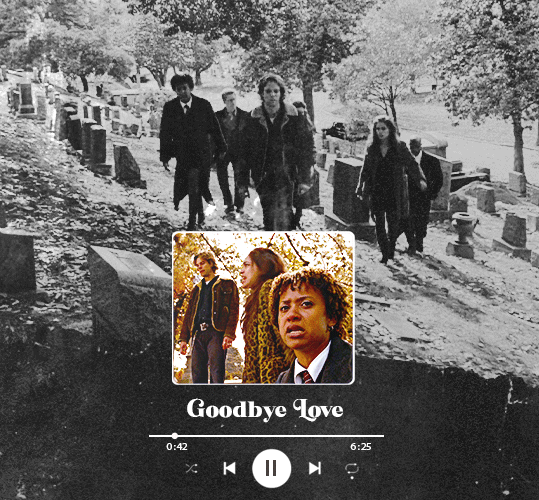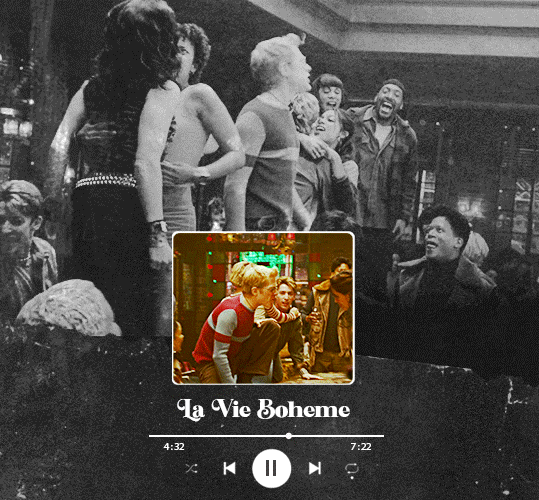#Roger Cohen
Explore tagged Tumblr posts
Text
The crisis of the world - 1933 and 2023
Thomas Weber
Memorise content
What does 1933 teach us? If we understand National Socialism as a form of illiberal democracy, we can see that today's variants could easily slide into something worse. Then as now, exaggerated perceptions of crisis play an important role.
In times when several major crises are brewing into what is perceived as an existential poly-crisis, fears of the political consequences of this perception spread. The most spectacular case of the collapse of a democracy - the collapse of the Weimar Republic in January 1933 - is therefore repeatedly scrutinised in the hope of discovering lessons for the present.
A prime example of this in recent years is what has been happening in the United States: since the New York Times columnist Roger Cohen greeted his readers with "Welcome to Weimar America" in December 2015, "Weimerica" has developed into a veritable genre of opinion pieces and books. After the attack on the Capitol in Washington in January 2021, the son of an Austrian SA man also used his fame as a Hollywood actor and former governor of the US state of California to record a video message to the world: In it, Arnold Schwarzenegger spoke about his father and drew direct comparisons between the Reichspogromnacht, the Nazi anti-Jewish pogrom of 9 November 1938, and the situation in the US in early 2021. to resolve the footnote[3]
It is therefore not surprising that Adolf Hitler is more dominant in public discourse today than he was a generation ago. Between 1995 and 2018, the frequency with which Hitler was mentioned in English-language books rose by an astonishing 55 per cent. In Spanish-language books, the frequency even increased by more than 210 per cent in the same period. To break up the footnote[4] This increase is a result of both a growing perception of crisis and another phenomenon: an awareness of how much the world we live in today can be traced back directly and indirectly to the horrors of the "Third Reich" and the Second World War.
But the world that emerged in 1933 is not invoked everywhere in order to understand and interpret today's situation. Strangely enough, one country in the heart of Europe has taken a different direction: Germany itself. Here, the frequency with which Hitler was mentioned in books fell by more than two thirds between 1995 and 2018. The same trend applies to other terms that refer to the darkest chapter of Germany's past, such as "National Socialism" and "Auschwitz". To resolve the footnote[5] However, a declining interest in National Socialism should not lead to the false assumption that today's Germany is less strongly characterised by the legacy of the "Third Reich" and the horror that the Germans spread throughout Europe. The legacy of National Socialism defines who the Germans are, and has done so since the day Hitler was appointed Reich Chancellor in January 1933.
New "special path"
In Germany, there was probably not so much explicit publicity about National Socialism because it was believed that the country had learnt from the past and built an exemplary political system with a corresponding society that had internalised the lessons of National Socialism. The prevailing narrative of the early Berlin Republic was that Germany had taken a "special path" towards dictatorship and genocide in the 19th and early 20th centuries. With reunification in 1990, however, the country had finally left this path and had fully arrived in the West. To resolve the footnote[6] According to this interpretation, the Berlin Republic was a new player in international politics, working side by side with its partners in Europe and the world to secure peace and stability at home and abroad.
However, the varying frequency with which Hitler, Auschwitz and National Socialism are referred to in books in Germany and abroad shows that Germany did not abandon its special path in 1990, but rather embarked on a new one. Germany's actual special path is that of its second (post-war) republic, which was founded in 1990 and, if one follows the argumentation of journalist and historian Nils Minkmar, collapsed in the wake of Putin's war of aggression against Ukraine. Germany's second republic, writes Minkmar, "took a holiday from history, was finally able to enjoy the moment like Faust and, also like Faust, made a pact - with Putin and with bad consequences". To resolve the footnote[7] However, Germany's holiday from history came to an abrupt end with the Russian invasion of Ukraine on 24 February 2022. In the words of Federal Chancellor Olaf Scholz: "24 February 2022 marks a turning point in the history of our continent." To resolve the footnote[8] Scholz is right when he speaks of a turning point, but it does not primarily concern "our continent", but first and foremost his own country. The Russian invasion of Ukraine made many Germans suddenly aware of the realities of international politics that had been present to Germany's neighbours for some time.
The Faustian pact was not born of malice - Germany's second republic had been founded and governed with the best of intentions. Rather, a certain short-sightedness had prevailed that prevented many Germans from seeing what many of their international partners had long recognised after Russia's previous invasions or the shooting down of MH17 - the Malaysia Airlines plane that was shot down by a Russian missile in Ukrainian airspace on its way from Amsterdam to Kuala Lumpur in July 2014. And this short-sightedness is closely linked to the normative conclusions that the protagonists of the Second German Republic had drawn from the country's experience with National Socialism, which differed quite drastically from those drawn by other countries.
As a result, many Germans relied on soft power and had little interest in hard power - without realising that the former is just hot air if it is not accompanied by the latter. At the same time, many failed to recognise that Putin's aggressive approach since the day he took office was in line with earlier phases of Russian history. This is also reflected in a sharp decline in references in German-language publications to terms associated with the dark side of Russia's past, such as "Gulag", "Stalin", "Prague Spring" or "popular uprising". Dissolving the footnote[9] In English-language books, the number of mentions of the terms "Stalin" and "Prague Spring" remained relatively constant between 1995 and 2018, while mentions of the "Gulag" actually increased significantly. Resolution of the footnote[10]
The illusions that were harboured in Germany ultimately stood in the way of both even more successful European integration and the creation of an even more durable security and peace architecture. Minkmar therefore believes that a third republic must emerge from the ruins of the second: one that takes a less short-sighted view of the world around it and leaves behind the "naivety" of thinking about the world. To resolve the footnote[11] It is therefore necessary to work out lessons from the "Third Reich" for the third republic.
Historical misunderstandings
However, the myopic view of the past is not limited to Germany. In fact, many of the lessons learnt worldwide from 1933 for crisis management in the 2020s are based on historical misunderstandings. For example, although there are countless books about the "Third Reich" and its horrors, in many cases, and without realising it, they reproduce clichés dating back to Nazi propaganda minister Joseph Goebbels, or they portray Hitler and the National Socialists only as madmen driven by hatred, racism and anti-Semitism. However, such approaches will never understand why so many supporters of National Socialism saw themselves as idealists. And they will not be able to explain why, according to Hitler, reason, not emotion, should determine the actions of National Socialism. On the resolution of the footnote[12]
A reductionist approach to the question of what characterised Hitler and other National Socialists is dangerous. It tempts us to look for false warning signs in today's world and to search for Hitler revenants and National Socialists in the wrong places. We are therefore recommended to read Thomas Mann's essay "Brother Hitler" from 1938, in which he portrays the dictator as a product of the same traditions in which he himself had grown up. In doing so, he opens our eyes to the realisation that it is not the angry crybabies, but above all people "like us" who are open to dismantling democracy in times of crisis. In fact, as soon as we take the ideas of the National Socialists seriously, it becomes disturbingly clear that many people supported these policies in the period from the 1920s to the 1940s for almost the same reasons that we so vehemently reject National Socialism today - not least the conviction that political legitimacy should come from the people and that equality is an ideal worth fighting for.
It is therefore important to dispel various misconceptions about the death of democracy in 1933 that are still taught in German schools today, including the idea that the seeds of Weimar's self-destruction were sown as early as 1919, that the "unstable Weimar constitution (.... ) ultimately led to the self-dissolution of the first German democracy", that "coalitions capable of governing [became] impossible because there were too many splinter parties", On the dissolution of the footnote[13] that the rise of Hitler resulted from the strength of the German conservatives, that the world economic crisis played the decisive role in the death of German democracy, that Germans supported the National Socialists, because they longed for the return of the authoritarian state of the past and rejected democracy in any form, or that the actions of the National Socialists did little to bring Hitler to power - which is evident, for example, in the tendency to speak only of a "transfer of power" in relation to the events of 1933 and not of a process that was both a "transfer of power" and a "seizure of power". On the resolution of the footnote[14]
The beliefs of the National Socialists and the appeal of their ideas cannot be understood if we do not take seriously the central apparent contradictions at the core of National Socialism, namely that the National Socialists destroyed democracy and socialism in the name of overcoming an all-encompassing, existential mega-crisis and creating a supposedly better and truer democracy and socialism. The National Socialists preached that all power must come from the people, not out of insincere and opportunistic Machiavellianism, but because they believed it. The promise of a National Socialist illiberal "people's community democracy" as a collectivist and marginalising concept of self-determination was widely accepted and promised to overcome what was supposedly the greatest crisis in centuries. This made 1933 possible and ultimately brought the world to the gates of hell.
So if we understand National Socialism as a manifestation of illiberal democracy, we see that today's variants of illiberal democracy could very easily slide into something much worse in times of crisis than we are currently experiencing in many places around the world. If we refrain from a reductionist account of National Socialism, we will recognise that the parallels between the present and the past lie primarily in the dangers posed by illiberal democracy and the general perception of crisis.
Furthermore, if we understand National Socialism as a political religion, we can understand why Germans followed its siren song en masse. Hitler's political religion demanded a double commitment from converts: firstly, to National Socialist orthodoxy - adherence to 'correct' beliefs and the practice of rituals - and secondly, to National Socialist orthopraxy - the 'ethical' behaviour prescribed by orthodoxy. In this way, acts of violence and war against internal and external "enemies of the people" were given a moral and even heroic significance - because they supposedly served a "higher" purpose, the good of one's own "national community". The belief systems of National Socialism are therefore inextricably linked to the violence and horrors of the "Third Reich". In other words, while it may well be true that liberal democracy brings with it a "peace dividend", illiberal democracy - at least in its totalitarian, messianic incarnations - can easily generate a "genocide and war dividend" if people believe they can overcome an existential crisis in this way.
Just as the National Socialist mindset should be taken seriously as a key driver of violent and extreme behaviour, the National Socialists themselves should also be understood as political actors with a clear plan for the future. Although it often looked as if they were merely reacting to others, it was precisely this reactive character of National Socialist behaviour that was a tactic - and a very successful one at that - that explains not only the developments in 1933, but also the dynamics of twelve years of Nazi rule. The path from the seizure of power to the settlement policy in the East, to total war and to a war policy of extermination and genocide was by no means long and tortuous - in the self-perception of its actors, it was the path to overcoming an existential polycrisis.
What does 1933 teach us?
The way in which the National Socialists succeeded in seizing and consolidating power and ultimately pursuing radical policies has more in common with the cunning of Frank Underwood, the fictional US president from the Netflix series "House of Cards", than with many of the portrayals that question whether their rise was coolly calculated. The political style and the illusion game of the National Socialists, the undermining and destruction of norms and institutions as well as the pursuit of a hidden agenda are increasingly becoming characteristics of politics in our time as well. Understanding the year 1933 should therefore help us to better understand today's challenges.
We therefore need a defensive democracy with strong guard rails in order to be able to counter the perception of an existential polycrisis. This includes strong party-political organisations that - unlike in daydreams of the transformation of parties into "movements" - prevent the internal takeover by radicals. Crucially, strong party structures also provide a toolkit to deal with polarised societies by both representing and containing divisions. The behaviour of conservative parties is particularly important here. German conservatism played a central role in the fall of Weimar democracy, but in a counter-intuitive way, not through its strength but through its weakness and the fragmentation of its organisations.
However, guard rails offer little or no protection if they are poorly positioned. Thus, a look beyond Germany reveals that in trying to make our own democracy weatherproof and crisis-resistant, we may have more to learn from cases where democracy survived in 1933 than from the death of democracy in Germany. The Netherlands, for example, had established a resilient political structure, or a defencible democracy avant la lettre, capable of dealing with a wide range of shocks to its system and responding flexibly to crises. As a result, the Dutch did not need to anticipate the specific threats of 1933, as their crisis prevention and response capacities were large enough to avoid the establishment of a domestic dictatorship. The comparison also shows that some supposed guard rails of today's democracy in Germany - such as the five per cent hurdle in elections - are largely useless and only appear to offer security.
The problem of looking at specific cases of the collapse of democracy, including the German case in 1933, harbours a danger: that the most important variables are insufficiently recognised and too narrow conclusions are drawn. The exact historical context of the collapse of a political order will always vary, as will the perception of an existential polycrisis and its political consequences. It therefore makes sense to identify states and societies from the past that were resilient to the widest possible range of shocks. Or as historian Niall Ferguson puts it: "All we can learn from history is how to build social and political structures that are at least resilient and at best antifragile (...), and how to resist the siren voices that propose totalitarian rule or world government as necessary for the protection of our unfortunate species and our vulnerable world." To resolve the footnote[15]
Nevertheless, the fall of the Weimar Republic in 1933 is a warning of where uncontained perceptions of crisis can lead. After all, it was Hitler's polycrisis consciousness and the associated individual and collective existential fear that formed the core of the emergence of Hitler's political and genocidal anti-Semitism. Added to this was the identification of the Jews with this crisis and the implementation of this identification in a programme of total solutions in order to "protect" themselves permanently. To resolve the footnote[16]
Perhaps the most important warning that the past century holds for us is that the biggest and most terrible crises in the world only arise when we try to contain real or perceived crises headlessly and without moderation. To resolve the footnote[17]
This article is a revised extract from Thomas Weber (ed.), Als die Demokratie starb. Die Machtergreifung der Nationalsozialisten - Geschichte und Gegenwart, Freiburg/Br. 2022.
Footnotes
On the mention of the footnote [1]
Roger Cohen, Trump's Weimar America, 14 Dec 2015, External link:http://www.nytimes.com/2015/12/15/opinion/weimar-america.html.
For the mention of the footnote [2]
Niall Ferguson, "Weimar America"? The Trump Show Is No Cabaret, 6 Sept. 2020, External link:http://www.washingtonpost.com/business/weimar-america-the-trump-show-is-no-cabaret/2020/09/06/adbb62ca-f041-11ea-8025-5d3489768ac8_story.html.
On the mention of the footnote [3]
Cf. Thomas Weber, Trump Is Not a Fascist. But That Didn't Make Him Any Less Dangerous to Our Democracy, 24.1.2021, external link:https://edition.cnn.com/2021/01/24/opinions/trump-fascism-misguided-comparison-weber/index.html.
On the mention of the footnote [4]
Cf. Google N-gram analyses for "Hitler" and "Auschwitz" in English and Spanish, created on 10 August 2022: External link:https://t1p.de/ngramspanish and External link:https://t1p.de/ngramenglish.
For the mention of the footnote [5]
Cf. Google N-gram analyses for "Hitler", "Auschwitz" and "National Socialism" in German, created on 10 January 2022: External link:https://t1p.de/ngramgerman.
On the mention of the footnote [6]
Cf. Heidi Tworek/Thomas Weber, Das Märchen vom Schicksalstag, 8 November 2014, External link:http://www.faz.net/13253194.html.
On the mention of the footnote [7]
Nils Minkmar, Long live the Third Republic, 10 May 2022, External link:http://www.sueddeutsche.de/projekte/artikel/kultur/e195647.
Mention of the footnote [8]
Government statement by Federal Chancellor Olaf Scholz, 27 February 2022, External link:http://www.bundesregierung.de/breg-de/suche/regierungserklaerung-von-bundeskanzler-olaf-scholz-am-27-februar-2022-2008356.
Mention of the footnote [9]
Cf. Google N-gram analyses for "Stalin", "Gulag", "Prager Frühling" and "Volksaufstand" in German, created on 10 August 2022: External link:https://t1p.de/ngramstalingerman and External link:https://t1p.de/ngramgulagpfvgerman.
For the mention of the footnote [10]
Cf. Google N-gram analyses for "Stalin", "Gulag" and "Prague Spring" in English, created on 10 August 2022: External link:https://t1p.de/ngramstalinenglish and External link:https://t1p.de/ngramgulagpsenglish.
On the mention of the footnote [11]
See Minkmar (note 7).
On the mention of the footnote [12]
In his first known written anti-Semitic statement - the so-called Gemlich letter of 1919 - Hitler rejected "anti-Semitism on purely emotional grounds" and advocated an "anti-Semitism of reason". Cf. Hitler to Adolf Gemlich, 16 September 1919, reproduced in: German Historical Institute Washington DC, German History in Documents and Images, n.d., external link:https://germanhistorydocs.ghi-dc.org/pdf/deu/NAZI_HITLER_ANTISEMITISM1_DEU.pdf.
On the mention of the footnote [13]
Cf. Fabio Schwabe, Gründe für das Scheitern der Weimarer Republik, 12 March 2021, external link:http://www.geschichte-abitur.de/weimarer-republik/gruende-fuer-das-scheitern.
On the mention of the footnote [14]
Cf. Hans-Jürgen Lendzian (ed.), Zeiten und Menschen. Geschichte, Qualifikationsphase Oberstufe Nordrhein-Westfalen, Braunschweig 2019, pp. 237-264; Ulrich Baumgärtner et al. (eds.), Horizonte. Geschichte Qualifikationsphase, Sekundarstufe II Nordrhein-Westfalen, Braunschweig 2015, pp. 242-270.
On the mention of the footnote [15]
Niall Ferguson, Doom. The Politics of Catastrophe, London 2022, p. 17, own translation.
On the mention of the footnote [16]
Cf. Thomas Weber, Germany in Crisis. Hitler's Antisemitism as a Function of Existential Anxiety and a Quest for Sustainable Security, in: Antisemitism Studies (n.d.).
On the mention of the footnote [17]
Cf. Beatrice de Graaf, Crisis!, Amsterdam 2022.
#Creative Commons Licence#CC BY-NC-ND 3.0 DE#Thomas Weber#bpb.de#Germany 1933#weimar#weimar America#stop violence#stop trump#save our democracy#vote democrat#vote blue#please vote#Weimerica#Roger Cohen#read more
10 notes
·
View notes
Text
«Putinism is a postmodern compilation of contradictions. It combines mawkish Soviet nostalgia with Mafia capitalism, devotion to the Orthodox Church with the spread of broken families, ferocious attacks on a "unipolar" American world with revived Russian imperialist aggression — all held together by the ruthless suppression of dissident voices and recourse to violence when necessary.»
– Journalist Roger Cohen, Paris bureau chief of the New York Times, with a short definition of Putinism. From the article "Putin’s Forever War" (archived).
All forms of fascism are personalized and Putinism is no different. Though promoting a sense of national victimhood is universal among fascists.
Putin's nostalgic pining for the decrepit Soviet Union distorts his view of the world. In a century where both China and the EU are stronger than Russia, he is psychologically stuck in the geopolitical world of circa 1970 when it was essentially just the US vs. USSR. Significantly, the tankies who parrot Putin's rantings are also wallowing in a Cold War mindset - but that's another story.
#invasion of ukraine#russia#vladimir putin#putinism#fascism#nostalgia for the ussr#repression#mafia capitalism#imperialism#putin's forever war#roger cohen#россия#русский мiръ#владимир путин#путин хуйло#бей путина#путинизм#фашизм#путин - военный преступник#бывший ссср#союз постсоветских клептократических ватников#путин – это лжедмитрий iv а не пётр великий#россия проигрывает войну#геть з україни#вторгнення оркостану в україну#україна переможе#слава україні!#героям слава!
15 notes
·
View notes
Text
為何全球大國無力阻止中東戰事
中東近一年的戰爭已經證明大國無力阻止戰事,甚至無法對戰事產生重大影響,這種失敗反映出一個權力分散的動盪世界,這種局面似乎可能會持續下去。在美國的推動下,以色列和哈馬斯為結束加薩地帶的戰鬥而進行的談判走走停停,拜登政府曾多次表示,談判即將取得突破,但都以失敗告終。為了避免在黎巴嫩爆發以色列和真主黨的全面戰爭,以西方為首的各國緊急行動起來,希望能制止災難的發生。 在以色列於週五殺死擔任真主黨領導人多年的哈桑·納斯魯拉之後,談判取得成功的可能性似乎極不確定。「在一個離心力遠大於向心力的世界裡,更多的能力掌握在更多的人手中,」外交關係委員會名譽主席理查德·哈斯說。「中東是這種危險分裂的主要案例。」 納斯魯拉執掌真主黨30多年,一手將這個什葉派組織打造成了世界上最強大的民間武裝力量之一。他的死亡給真主黨留下了一個很可能需要很長時間才能填補的真空。這對真主黨的主要支持者伊朗來說是一個重大打擊,甚…
0 notes
Text
this is NAWT a safe space for rent haters btw

#rent 2005#rent broadway#rent movie#rent the musical#rent musical#mark cohen#roger davis#maureen johnson#joanne jefferson#mimi marquez#tom collins#angel dumott schunard#anthony rapp#adam pascal#musical theatre
186 notes
·
View notes
Text

#the rent brainrot comes back with a vengeance#rent#rent 2005#rent musical#rent the musical#broadway#musical theatre#musicals#roger davis#maureen johnson#mark cohen#benjamin coffin iii#joanne jefferson#mimi marquez
205 notes
·
View notes
Text

tell the folks at home what you’re doing, roger
#fanart#digital art#artists on tumblr#small artist#illustration#2025#jonathan larson#jonathan larson project#tick tick boom#ttb#rent musical#broadway#theatre kid#theatre#theater kid#90s broadway#90s#mark cohen#roger davis#rent#rent 2005
54 notes
·
View notes
Text

December 24, 9 PM EST: From here on in I shoot without a script.
#rent#rent musical#mark cohen#roger davis#mimi marquez#maureen johnson#joanne jefferson#angel dumott schunard#anthony rapp#adam pascal#daphne rubin vega#idina menzel#fredi walker#wilson jermaine heredia#my art (?)#my collage#a ballad by orpheus#i have more collages like these so if you like this one i might post the other two!
88 notes
·
View notes
Text




We're hungry and frozen! Some life that we've chosen!
Jang Ji-hu as ROGER and Jeong Won-yeong as MARK in RENT at the COEX Artium from 2023 to 2024 in Seoul, South Korea
#rent#rent musical#mark cohen#roger davis#rentedit#theatreedit#musicaledit#broadwayedit#asiantheatrenet#usergavin#*gifs#anyways. fave musical ever <3#i love rent productions that lean into mark and roger being bfs
87 notes
·
View notes
Text

tbh
#rent#rent musical#mark cohen#roger davis#do you ever think about them#it could also work as 'especially to me' / however that one goes but yk
125 notes
·
View notes
Text
rent did not say
"how do you document real life when real life's getting more like fiction each day?"
and
"how can you connect in an age where strangers, landlords, lovers, your own blood cells betray? what binds the fabric together when the raging, shifting winds of change keep ripping away?"
and
"i try to open up to what i do not know because reason says i should have died 3 years ago"
and
"will i lose my dignity? will someone care? will i wake tomorrow from this nightmare?"
and
"i think they meant it when they said you can't buy love / now i know you can rent it / a new lease you are, my love"
and
"i'd forgotten how to smile until your candle burned my skin"
and
"the opposite of war isn't peace / it's creation"
and
"it's time now to sing out / though the story never ends / let's celebrate, remember a year / in the life of friends"
and
"you're always preaching not to be numb / when that's how you thrive / you pretend to create and observe when you really detach from feeling alive / (perhaps it's because i'm the one of us to survive)"
and
“i don’t own emotion / i rent”
for you to disrespect her like this
205 notes
·
View notes
Text
Rent moment of all time in Tune Up #1 when Mark asks Roger what he’s doing for the second time and the phone rings, to get Roger to stop talking he just Grabs His Head.

From what I can tell this might just be an Anthony Rapp thing but I wish it was part of the blocking because it’s so funny.
80 notes
·
View notes
Text










@pscentral event 19: music ⤷ Rent + favorites songs
#*sophie2#*leavingubehind#userleavingubehind#pscentral#rent#music#musicals#movie#movies#rent the movie#broadway#Mark Cohen#anthony rapp#adam pascal#Roger Davis#mimi marquez#rosario dawson#tom collins#jesse l martin#maureen johnson#idina menzel#joanne jefferson#tracie thoms#angel dumott schunard#wilson jermaine heredia#benjamin coffin III#taye diggs#my stuff#mine#rent the musical
300 notes
·
View notes
Text

#RENT#renthead#rent musical#mark cohen#roger davis#cowabummer#raphael#batman#tmnt#teenage mutant ninja turtles#shitpost#shit post#musicals#december 24th#9pm eastern standard time#from here on in I shoot without a script
32 notes
·
View notes
Text
me: today is my favorite holiday of the year!
friend: but christmas is tmrw?
me:😈😈😈
DECEMBER 24th 9 PM EASTERN STANDARD TIME FROM HERE ON IN I SHOOT WITHOUT A SCRIPT. SEE IF ANYTHING COMES OF IT INSTEAD OF MY OLD SHIT. FIRST SHOT ROGER TUNING THE FENDER GUITAR HE HASN’T PLAYED IN A YEAR. tHiS wOnT tUnE. so we hear heh. HES JUST COMING BACK, FROM HALF A YEAR OF WITHDRAWAL. u taking to me? NOT AT ALLLLLLL. ARE YOU READY HOLD THAT FOCUS STEADYYYY. TELL THE FOLKS AT HOME WHAT UR DOING ROGERRRR i’m writing one great songgg
THE PHONE RINGS
saveddd
WE SCREENNN ZOOM IN ON THE ANSWERING MACHINE.
#rent#rent the musical#renthead#rent movie#rent musical#theater kid#musicals#broadway#musical theatre#mimi marquez#maureen johnson#mark cohen#roger davis#angel dummott schunard#tom collins#joanne jefferson#december 24 9pm eastern standard time
182 notes
·
View notes
Text










"To being an us for once, instead of a them." - Jonathan Larson
36 notes
·
View notes
Text




A compilation of favorite moments cause friendship goals <3
#i love them too much#look how silly they are#collins just wants to cuddle#can't blame him#ugh<3#rent#rent the musical#rent musical#broadway#musical theatre#musicals#gif#gif set#mark cohen#roger davis#tom collins#anthony rapp#adam pascal#jesse l martin
78 notes
·
View notes